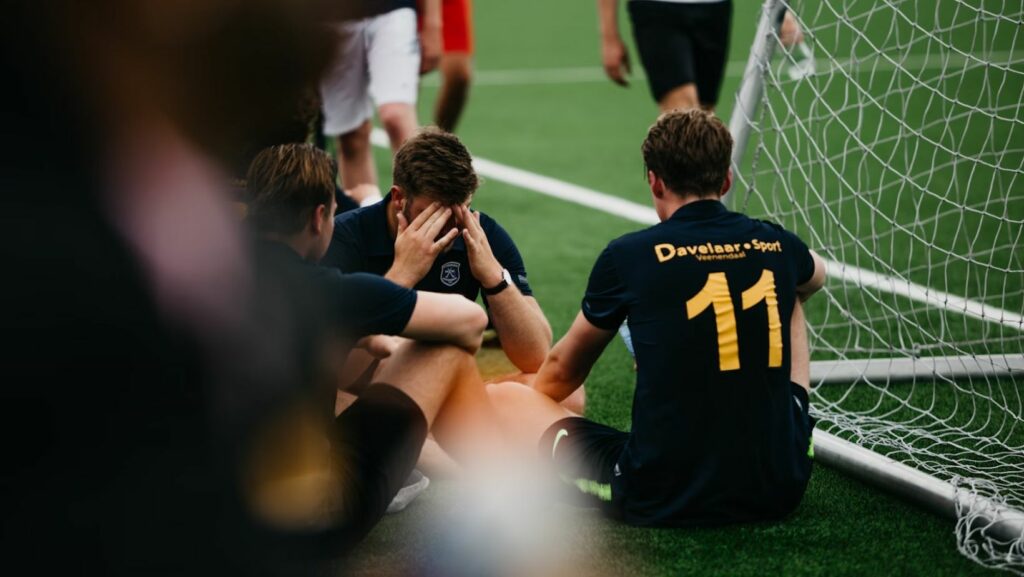The topic of mental health in sports has gained more attention in recent years, shedding light on the psychological struggles athletes face. While the physical demands of sports are obvious, the mental toll is often underestimated. From the pressure to perform to the stigma surrounding mental health, athletes are increasingly encountering unique challenges that affect their well-being.
Addressing these challenges requires a deeper understanding of mental health in sports and the development of strategies that prioritize psychological wellness alongside physical fitness. Only once such issues are highlighted and publicly talked about can we begin to find the right solutions and improve the way in which these problems are handled.
The Pressures Athletes Face
Athletes often experience intense pressure to perform at their peak, whether from coaches, fans, or even themselves. This pressure can lead to stress management issues, particularly when athletes are expected to maintain top performance under high-stakes conditions. Here are some other issues that lead to mental stress and pressure:
- The constant need to win and meet expectations leads to a disruption in the athlete’s focus, emotional stability, and overall confidence.
- The stigma that surrounds mental health makes players hesitant to speak up about their problems, as they may be perceived as weak.
These issues often prevent them from accessing critical support such as counseling for athletes, which could help them develop healthier coping mechanisms.
The Psychological Impact of Injuries
Injuries are an inevitable part of sports, but their psychological impact is often overlooked. When athletes are sidelined due to injury, they can experience feelings of frustration, depression, and anxiety about their future in the sport. The physical recovery process can be long, but the recovery and mental health aspects of injury rehabilitation are just as important. Mental health support, such as sports psychology and psychological training, can aid athletes in maintaining a positive mindset during their recovery and help them build emotional resilience.
Those who enjoy betting on sports know just how long-lasting and significant certain injuries can be, as the players they would normally bet on easily would often fail to perform after undergoing an injury. In such a case, gamblers wouldn’t want to use their Spinbetter promo code to bet on an injured player. The worst part of this situation, however, is that this understanding of the mental health aftereffects of a physical injury is not taken seriously on a larger scale.
The Risk of Burnout
One of the most pressing mental health challenges athletes face is burnout. Burnout in athletes can occur when they are overwhelmed by the physical and mental demands of their sport. This leads to a number of further issues, including:
- Exhaustion
- Disinterest
- Decline in performance
This phenomenon is particularly common in the hardest global sports where competition is fierce, and there is little time for rest and recovery. Without proper stress management strategies and psychological support, burnout can have long-term negative effects on an athlete’s career and overall well-being.
Strategies for Supporting Athlete Well-Being
There are several ways to better support mental health in athletes and address these challenges.
Fostering a Supportive Culture
Creating an environment where athletes feel comfortable discussing their mental health is crucial. Coaches and teams should promote open conversations and encourage seeking help when needed, reducing the stigma around mental health challenges. Athlete education programs can play a key role in this by offering resources and information on psychological assessments and counseling.
Mindfulness and Stress Management
Mindfulness in sports has become an increasingly popular practice. Here are a few things to keep in mind when promoting mindfulness:

- Breaking exercises that relax the body and mind
- Meditation before or after a game to soothe the mind
- Talking to peers and support groups to achieve a positive mindset
Counseling and Mental Health Resources
Access to counseling for athletes and mental health professionals who specialize in sports psychology is essential. This support can help athletes process their feelings, develop emotional resilience, and better handle the demands of their sport. Ongoing psychological assessments can ensure athletes receive the care they need as their mental health fluctuates throughout their careers.
Psychological Training and Education
Incorporating psychological training into regular athletic programs is another effective way to prioritize mental health. Just as athletes train their bodies, they can also train their minds to cope with the psychological challenges of their sport. This training can include techniques for managing stress, improving focus, and building mental toughness.
Promoting Healthy Competition
While competition is a core part of sports, fostering healthy competition is key to maintaining athlete wellbeing. Athletes should be encouraged to strive for personal best and focus on growth rather than always comparing themselves to others. This approach can help reduce the pressure to perform and minimize feelings of inadequacy or failure, which are common triggers for mental health issues, whether you’re playing a specific wrestling weight class or are part of a team.
Conclusion
The mental health of athletes is just as important as their physical health. By acknowledging the mental health challenges athletes face, such as pressure, injury, and burnout, the sports community can work to foster a culture of support and resilience.

Through sports psychology, mindfulness in sports, and access to counseling for athletes, we can promote an environment where mental health is a priority, ensuring that athletes can achieve both peak performance and personal well-being.

